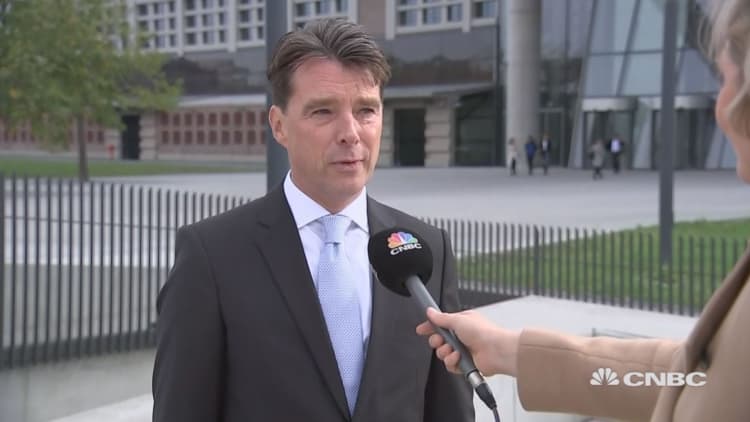The European Central Bank (ECB) took no action on Thursday, leaving its benchmark interest rates unchanged.
However, the ECB confirmed that its plan to end monetary easing by the end of the year remains on track.
"Regarding non-standard monetary policy measures, the Governing Council will continue to make net purchases under the asset purchase programme (APP) at the new monthly pace of 15 billion euros until the end of December 2018," the ECB said in a statement.
"The Governing Council anticipates that, subject to incoming data confirming the medium-term inflation outlook, net purchases will then end," the bank added.
The decision takes place as concerns mount over Italy's fiscal policies and their potential impact over the stability of the euro area.
The end of the ECB's massive crisis-era stimulus program could be a challenging moment for European bonds, given that the ECB will no longer be in the market purchasing sovereign paper and providing some sort of backstop. This could add further pressure, mainly on Italy, given the widespread concerns over its debt pile.

The euro zone's central bank had announced in June that quantitative easing (QE) program at the end of the year, if the data continue to show a pickup in inflation.
Back then, the ECB had also said that interest rates were unlikely to be increased until at least next summer — an outlook that was repeated Thursday.
All eyes on Draghi
The euro was marginally higher following the announcement, up by 0.14 percent against the dollar at $1.14.
Market players will be looking for further details from President Mario Draghi, who will address the press at 1.30 pm. London time.
"No additional details on reinvestment is mentioned in the statement accompanying the rate decision, though this will be a topic of discussion on the press conference," Claus Vistesen, European economist at Pantheon Macroeconomics said in an email to CNBC Thursday.
He also said that "recent market action and economic data provide plenty of cover for Mr. Draghi to put on a dovish show."
"We doubt that the president will signal a shift away from the policy path already set. QE will end this year, and that rates will slowly begin to increase next year. The only plausible change in our view is a slightly more cautious economic assessment," he added.


